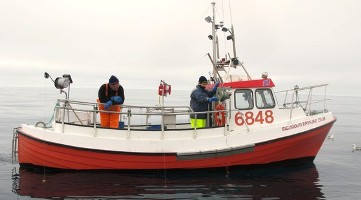As reported by the Arctic Portal, real time catches in the Canadian, Alaskan and Russian Arctic waters are considerably higher than reported to the United Nations Food and Agriculture Organization (FAO).

However, under-reporting of Arctic fishing data to the FAO is no cause for alarm, according to Nunavut's largest fisheries group. Jerry Ward, chief executive officer of the Baffin Fisheries Coalition, states that there is no overfishing in the Canadian Arctic.
The problem is inadequate reporting
Dirk Zeller, the lead author of the University of British Columbia report, said he also does not believe there is overfishing in Canada's Arctic waters. The problem, Zeller said, is that Canada and other Arctic nations are not properly reporting their catch data to the United Nations even though they committed to do so more than 60 years ago. As the climate changes and Arctic sea ice shrinks, Zeller said it is important to have accurate fishing numbers in the region.
"The question arises, of course: Why does the Canadian government not report any catches to the international community?" Zeller said.
Zeller and his colleagues with UBC's Fisheries Centre, as well as the university's department of ocean sciences, arrived at their own estimates by reconstructing catch data from sources such as governmental reports and anthropological records of fishing activities by indigenous populations. In addition to commercial fishing data, Zeller said Arctic nations should also be reporting catch data from small-scale fishing by people in northern communities. That way, Zeller said it would give a more accurate portrait of what's coming out of Arctic waters — a portrait that he said could help protect Canada's Arctic sovereignty claims.
Source:CBC News
